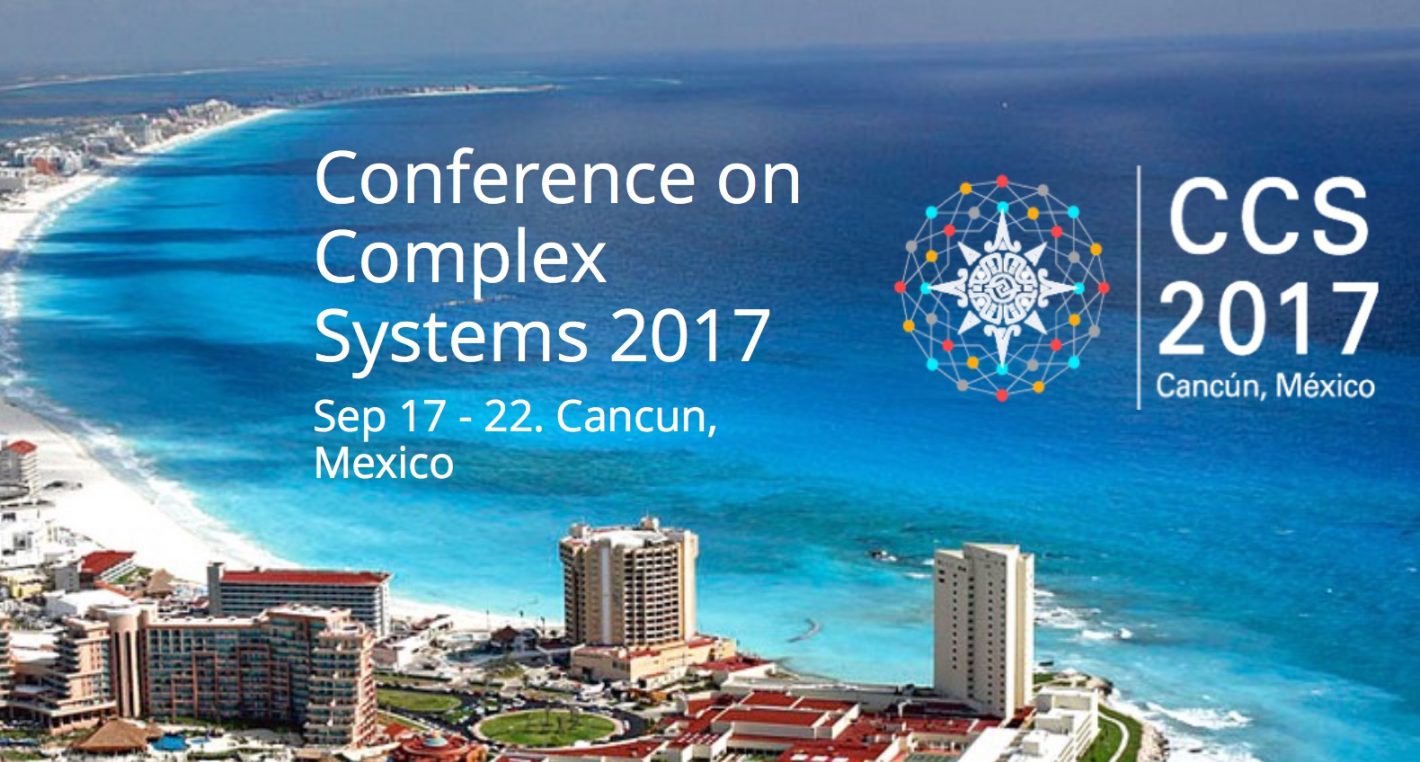Call for Abstracts: Evolution of Cultural Complexity

Evolution of Cultural Complexity Session at CCS 2017 (17-22 September 2017, Cancun, Mexico)
The Conference in Complex Systems is a major annual event for people studying Complex Systems. This year it will held in Cancun, Mexico, and a full day satellite session will be dedicated to Cultural Evolution and Social Learning.
The submission deadline is May 26th (submit here). For more information visit the official website: www.ccs17.bsc.es
If you have questions or suggestions send an email to
Scientific Background
Human sociocultural evolution has been documented throughout the history of humans and earlier hominins. This evolution manifests itself through development from tools as simple as a rock used to break nuts, to something as complex as a spaceship able to land man on other planets. Equally, we have witnessed evolution of human population towards complex multilevel social organisation.
Although cases of decrease and loss of this type of complexity have been reported, in global terms it tends to increase with time. Despite its significance, the conditions and the factors driving this increase are still poorly understood and subject to debate. Different hypothesis trying to explain the rise of sociocultural complexity in human societies have been proposed (demographic factor, cognitive component, historical contingency…) but so far no consensus has been reached.
Here we raise a number of questions:
- Can we better define sociocultural complexity and confirm its general tendency to increase over the course of human history?
- What are the main factors enablingan increase of cultural complexity?
- Are there reliable way to measure the complexity in material culture and social organisationconstructs, that is?
- How can we quantify and compare the impact of different factors?
- What causes a loss of cultural complexity in a society? And how often these losses occurred in the past?
Goals of the session
In this satellite meeting we want to bring together a community of researchers coming from different scientific domains and interested in different aspect of the evolution of social and cultural complexity. From archaeologists, to linguists, social scientists, historians and artificial intelligence specialists – the topic of sociocultural complexity transgresses traditional discipline boundaries. We want to establish and promote a constructive dialogue incorporating different perspectives: theoretical as well as empirical approaches, research based on historical and archaeological sources, as well as actual evidences and contemporary theories. We are particularly interested in formal approaches which enable more constructive theory building and hypothesis testing. However, even establishing common vocabulary of terms and concepts and discussing the main methodological challenges in studying sociocultural complexity is an important step towards a more cohesive framework for the understanding of cultural evolution in general and for individual research case studies in particular. Our approach is informed by the convergence between simulation and formal methods in archaeological studies and recent developments in complex systems science and complex network analysis.
The session will focus but is not limited to:
- Social dynamics of innovation.
- Cumulative Culture and social learning.
- Evolution of Technology and technological changes
- Cognitive Process,Creativity, cooperation and innovation
- Population Dynamics and Demographic Studies
- Computer tools to understand the cultural evolutionary change

0 Comments